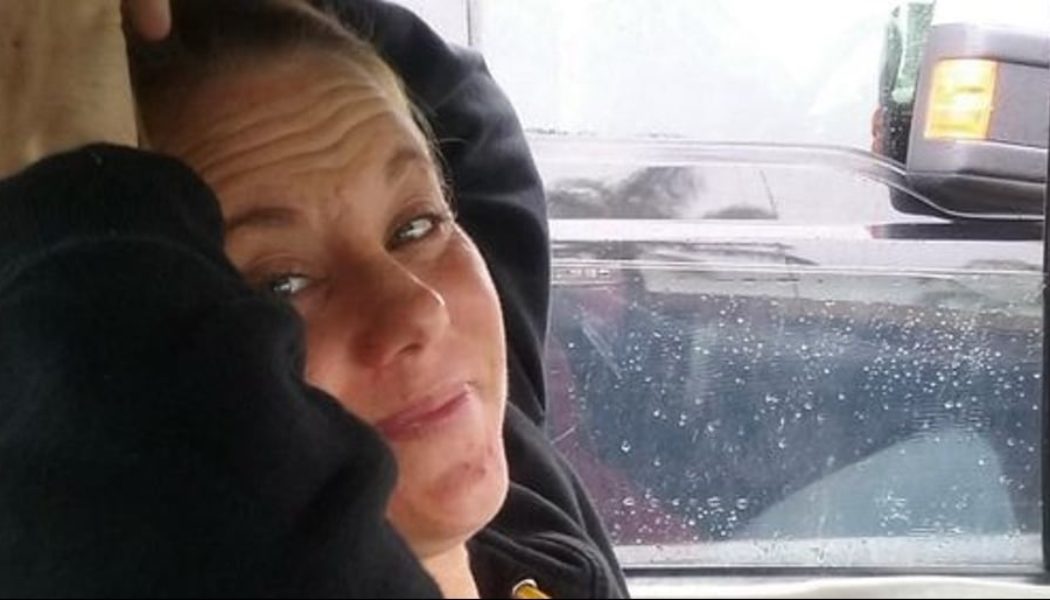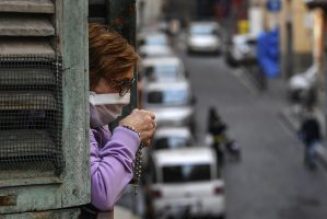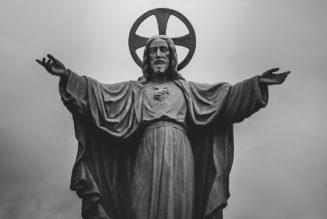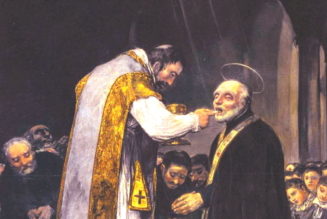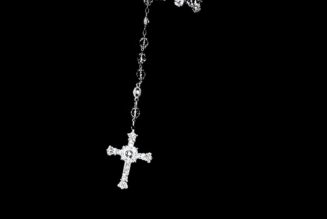
Above: Sabrina Peckham (photo posted online by her family)
“As we love Christ in our neighbor, everywhere and always, He will draw us unto Himself… Christ always comes to us in others.” – Servant of God, Catherine Dougherty
In his essay, “Why I Had a Mass Offered for Janis Joplin,” Rick Becker suggested we do the same for other deceased personalities who have entertained or inspired us. This would, he noted, be a way of thanking them, and likely win for us their celestial prayers. I was glad Becker promoted such Masses, because I too have had them said—for the souls of authors Andre Dubus, Ernest Hemingway, and Kurt Vonnegut, as well as a songwriter who’s meant a lot to me, and who happened to know Joplin, the uniquely talented but tormented, Townes Van Zandt. Masses for the dead are a profound spiritual work of mercy, an expression of our Christian love that we can lavish upon anyone.
Becker said it didn’t matter if Joplin was Catholic, or even if she was religious. “Grace is grace is grace,” he wrote, “and Janis Joplin could benefit from a healthy dose like anybody else on the path to heaven.” Amen! Thanks to Becker’s benevolence and God’s foreknowledge of it, we can hope that Joplin, ridiculed in high school for her homeliness and addicted to both alcohol and heroin at the time of her 1970 death, was receptive to grace in her final seconds and, even if she must first endure purgatory, will ultimately enjoy the beatific vision.
The comments on Becker’s essay were overwhelmingly supportive, but one critic claimed having Masses offered for people like Joplin was a flirtation with Universalism—the heresy that all will be saved. I’d counter that this warning, though well-intentioned, is itself a flirtation with judgmentalism. Only God knows a person’s heart, and who will and will not be saved. Moreover, Jesus told St. Faustina that at the moment of death He calls a soul up to three times, trying to get it to turn to Him, and on another occasion He said, “The greater the sinner, the greater the right he has to My mercy” (Diary, 723).
We should also remember that Becker was advocating for private Masses, offered by “some random priest somewhere” or “a missionary priest in the hinterlands,” and thus, there’d be no chance of causing in a local parish what is commonly called scandal. Nor would ill-informed Catholics be led to believe that lifelong hedonists, or individuals who had committed great evils, can be guaranteed salvation via the power of a Mass, which mystically makes present on the altar, Christ’s once-and-for-all sacrifice.
God is the judge, and our job is simply to love people, whether they be Catholics like Dubus and Hemingway—the author of The Old Man and the Sea was indeed Catholic—Protestants like Joplin and Van Zandt, or someone like Vonnegut, the self-proclaimed “Christ-loving atheist” who often wrote about the Sermon on the Mount. Yes, these artists are prime examples of our wounded humanity: they suffered from depression and substance abuse; the men were less-than-ideal fathers, with the two Catholics marrying a total of seven women; Hemingway committed suicide, Vonnegut attempted it, and Van Zandt, whatever his motives, once played Russian roulette with a .357 Magnum. Nonetheless, their art enriched our lives, and now that they’ve gone “the way of all flesh,” as another wounded person, King David, put it, the best way to love them is to have the Holy Sacrifice of the Mass offered for them.
But what about people who haven’t enriched our lives, the ones we only see briefly in a news segment or read about online? What about someone like Sabrina Peckham, the 41-year-old homeless woman who in 2023 was killed by an alligator in Largo, Florida? Articles stated she’d lived in a wooded area near the attack, and had previously been convicted of trespassing, theft, and drug possession. Is she not also worthy of our love? Is she not precisely who Jesus was talking about in Matthew 25:31-46, one of “the least of these” He identified with so closely?
It’s hard to be more “least” than a homeless woman who gets eaten by an alligator, but there are others who also have a special place in Our Lord’s Sacred Heart. Among them are veterans suffering from PTSD who freeze to death on the streets, commuters who get pushed in front of subway trains, convenience store clerks riddled with bullets for a few hundred dollars in cash drawers, and the multitudes who die each year in hurricanes, earthquakes, and other natural disasters. Were it printed out, the List of the Least would stretch to the stars. Rather than turn away from such sorrow—it is difficult to think about—we can choose anyone from that list, named or unnamed, and bless that person with a Mass.
Proving the paradox of the human condition, Peckham’s daughter, Breauna Dorris, said although her mother “chose the wrong path in life for sure,” she “was selfless” and “would give you the last piece of food off her plate,” and recalled how the homeless woman stopped by each day to spend time with her grandchildren. God created Sabrina Peckham out of love, and yet, long before her tragic death, something went wrong. She loved her family and they loved her, but she lived in the woods. Perhaps her drug use meant she couldn’t stay under the same roof as her grandchildren. Maybe she had mental problems that made her more comfortable residing outdoors. We’ll never know. And it doesn’t matter.
During a 1999 interview with Ed Bradly, the guitarist Eric Clapton, who, unlike Joplin, overcame his alcohol and heroin addiction, revealed his substance abuse started as a child: he would consume sugar for its psychotropic effect. “When I was five, six years old,” said Clapton, “I was cramming sugar down my throat as fast as I could… I became addicted to sugar because it changed the way I felt.” The truth is, since the Fall—even after baptism—humanity is grievously compromised. Without God’s grace there isn’t an addiction or aberration or sin, no matter how heinous, of which we all aren’t capable. Once we admit that, we’re free to see Christ in our wounded brothers and sisters and to love them.
St. Teresa of Ávila compared life on earth to a night at a bad inn. However, it might be more accurate to say that since being expelled from the Garden of Eden, man has been trudging through a swamp. And if in this swamp we aren’t killed prematurely by an actual alligator, or by some other tragedy or addiction or disease, we will, with time, succumb to the multiple insect bites of old age. In preparation for that moment let’s practice the greatest spiritual work of mercy: let’s have the Holy Sacrifice of the Mass offered not only for family and friends and artists who have enhanced our lives, but also for people who haven’t done anything for us, people we don’t even know, “the least of these” so quickly forgotten by most of the world, because as Teresa’s friend St. John of the Cross said when echoing Our Lord’s aforementioned gospel counsel, “In the evening of life, we shall be judged on love.”
@media (max-width: 1200px) { }body .ns-inline a.ns-button, body .ns-inline .ns-total-share-count { margin: 0px 0px 0px 0px; }body .ns-buttons.ns-inline .ns-button-icon { width: 100%; } Services Marketplace – Listings, Bookings & Reviews
